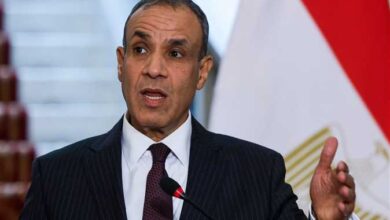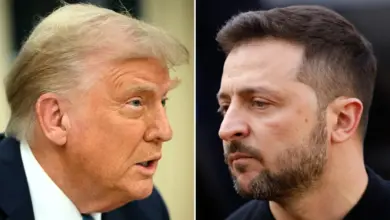Who determines Egypt’s foreign policy? Is it the Foreign Ministry or the General Intelligence Service, or both?
I pose this question after learning that Foreign Minister Ahmed Abul Gheit and Intelligence Chief Omar Suleiman are visiting Washington to discuss a number of regional issues–including Sudan, the Palestinian territories, Iraq and Lebanon–with US officials.
Observers note that Suleiman almost always accompanies Abul Gheit on his visits to foreign countries and have, understandably, started wondering about the significance of their inseparability.
Does Suleiman have special role in setting the foreign policy agenda? Or, do his frequent travels simply reflect his strong personal relationship with President Hosni Mubarak? Or, does it point to a growing role for the security establishment in the formulation of Egypt’s foreign policy?
There are no immediate answers. I don’t think anyone–other than the President himself–has a conclusive answer. But since these questions are both important and legitimate, we should try to dig deeper, especially as this concerns what seems to be an Egyptian aberration, rather than an established diplomatic practice.
In all types of political systems–be they democratic or not–foreign policy is formulated by the head of the executive authority, and implemented by the foreign ministry.
The difference between democratic and undemocratic states is that in the former the head of the executive is governed by laws and a constitution both of which guarantee a separation of powers and a solid system of mutual checks and balances. In undemocratic systems, the head of the executive has a free hand to shape foreign policy in line with his personal vision of local, regional and international affairs.
In all cases, the Foreign Ministry is the body that implements decisions with regards to international relations. Since, in many cases, other ministries and institutions are tasked with functions that overlap with foreign policy, some countries have established a national security council to represent all potential foreign policy makers.
The situation in Egypt is different. First, certain issues are sometimes taken away from the Foreign Ministry and handed directly to other figures or institutions (as when Egyptian-Libyan relations were entrusted to former Minister of Information Safwat al-Sherif). Second, The Egyptian chief of intelligence often assumes a role similar to that of the foreign minister.
Nobody quite understands the nature of this phenomenon or why it exists. In all cases, it is a not a healthy practice since it gives way to duplication and a clash of responsibilities, which in turn will give rise to power centers and the creation of multiple bureaucratic bodies with incompatible interests and orientations. Furthermore, the president can dispatch a personal envoy to discuss sensitive issues whenever he wishes, without compromising the structure of foreign policy decision-making.
The establishment of a national security council may be the best way out of this dilemma. And since Egypt is currently exposed to serious security threats, the time may just be ripe.
Translated from the Arabic Edition.




